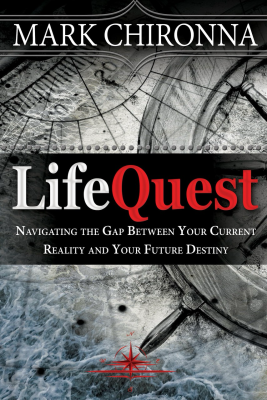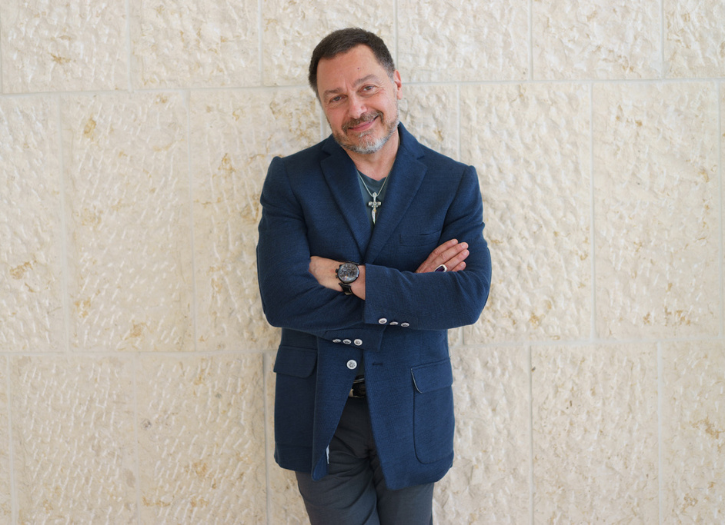There are moments in history when the world shifts—not in small, incremental ways, but in seismic, irreversible transformations. To navigate such times wisely, if is imperative that we learn to recognize where we stand in the arc of history. Every era carries within it the weight of the past, the demands of the present, and the unseen forces of the future pressing upon it. As Sohail Inayatullah has observed, the future is not a distant horizon but an active force shaping the present, just as the past continues to exert its influence in ways we do not always recognize. True discernment requires holding these three dimensions in tension—learning from what has been, reckoning with what is, and preparing for what is to come.
Throughout history, those who have understood the times have been those who could perceive not only the immediate crisis but also the deeper undercurrents shaping it. The ancient Hebrew Canon speaks of the sons of Issachar, who were praised for their ability to interpret the times and know what ancient Israel should do (1 Chronicles 12:32), a skill as essential now as it was then. We are not simply reacting to isolated events; we are standing in the midst of a larger transition, one that is exposing long-buried fractures, dismantling once-unquestioned assumptions, and forcing us to reconsider where true stability lies. If we are to respond with wisdom rather than fear, our first obligation is to understand the nature of this moment—what is being revealed, what is being removed, and what is being required of us.
The challenge before us is not merely political or cultural; it is spiritual and psychological at its core. We are witnessing the unmooring of collective certainties, the erosion of structures that once felt immovable. This is not just about the crisis of governance or the disintegration of institutional trust—it is about what happens within the human soul when the external world becomes unreliable. When the ground shifts beneath us, we instinctively grasp for stability. Some turn to nostalgia, clinging to past certainties as if they can be recovered. Others give in to despair, assuming that nothing holds anymore. But neither reaction provides what is truly needed: the courage to confront the reality of upheaval without losing our grounding in what is timeless.
It is tempting in times of collapse to look for scapegoats, to assign blame for the instability we feel. But blame is a cheap substitute for wisdom. The impulse to attribute every failure to ideological enemies—whether real or imagined—exposes something more fragile than conviction: a fear of facing what is truly unfolding. When we see old structures giving way, the question is not merely Who is at fault? but What is being revealed? Are we witnessing the necessary dismantling of illusions that could never hold? Is this a time of purification, where we must let go of what was never built to endure?
The present crisis is not only external; it is also internal—spiritual, psychological, and moral. If the younger generation appears vulnerable, unprotected, or uncertain, it is not because they are inherently weak, but because they have inherited a world where meaning has been fractured. They are navigating an existence where competing narratives, unchecked power, and shifting cultural tides leave little room for rootedness. To simply denounce them as lost or misguided is to abdicate responsibility. The deeper question is, how have we prepared them to endure times like these? Have we offered them something firm enough to stand on when the ground beneath them gives way?
And yet, there are signs of resilience. Even in disruption, the capacity to communicate, to connect with deeper truth, remains. What is anchored is not lost, even if it seems momentarily displaced. The disorientation of the present moment may feel as if our clarity and voice have been taken from us, but there remains the possibility of recovering what matters most. This recovery will not happen through reactionary defensiveness but through a depth of soul that can withstand upheaval without turning bitter, a faith that does not depend on stability to remain steadfast.
If we are to move forward in wisdom, we must first learn to sit with the weight of what is happening—not in passive despair, but in the kind of sober discernment that refuses easy answers. The times demand more than simplistic blame or ideological posturing. They require a clarity that can see through the noise and recognize what is at stake. We do not need louder voices or more heated rhetoric. We need something far rarer: reasonable and reasoning adults who are mature enough to be willing to see, to name, and to walk forward without fear.
Dr. Mark Chironna is a public scholar, executive and personal coach, and thought leader with five decades of experience in leadership development, cultural analysis, and future-focused strategies. With advanced degrees in Psychology, Applied Semiotics and Futures Studies, and Theology, he brings a unique interdisciplinary approach to helping individuals and organizations navigate complexity, unlock potential, and craft innovative solutions.
As a Board Certified Coach with over 30,000 hours of experience, he empowers leaders and teams to thrive through resilience, foresight, and actionable strategies. Passionate about human flourishing, he integrates psychological insight and cultural trends to inspire growth and transformation.

Photo Credit: Courtesy of Dr. Mark Chironna







Add Comment